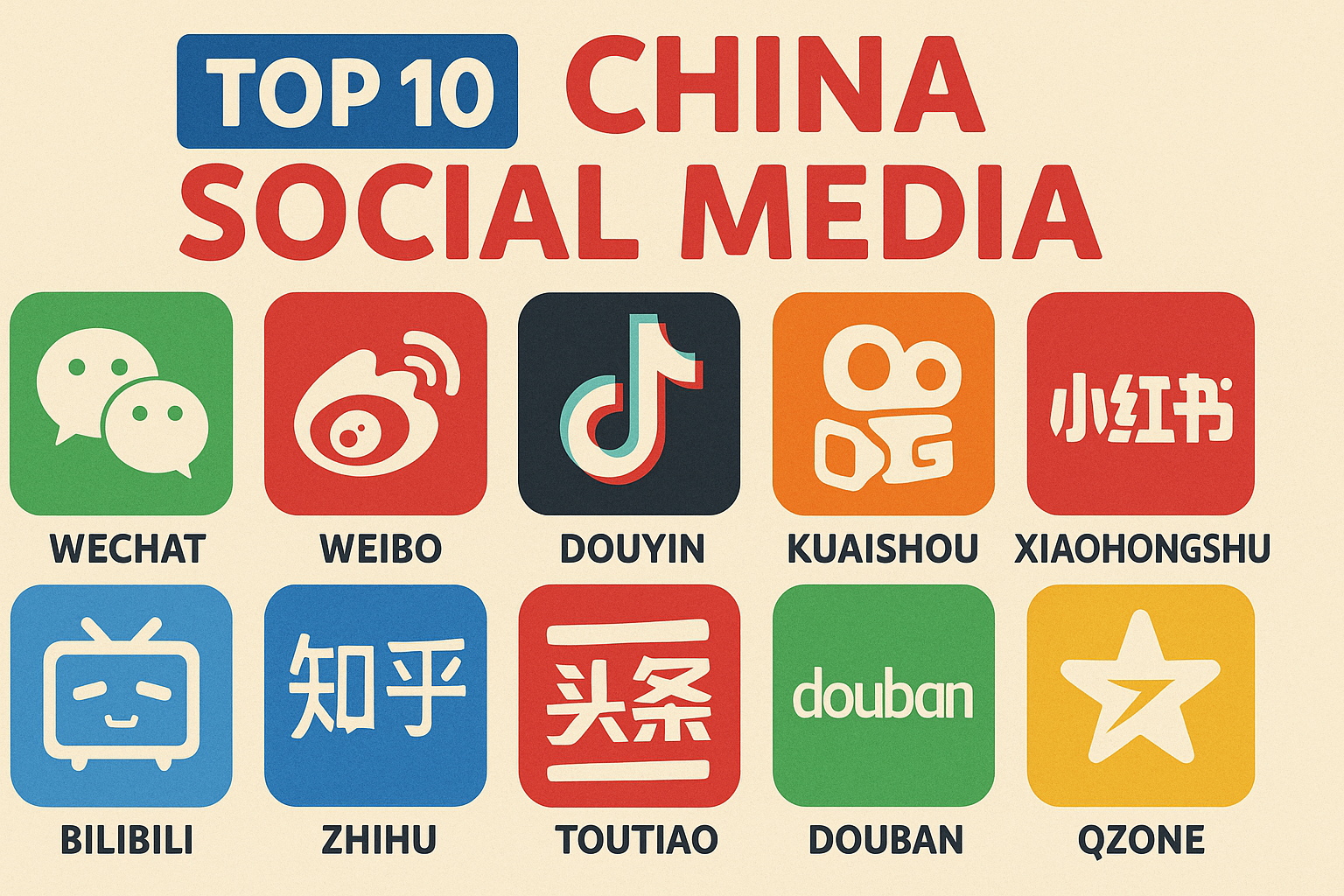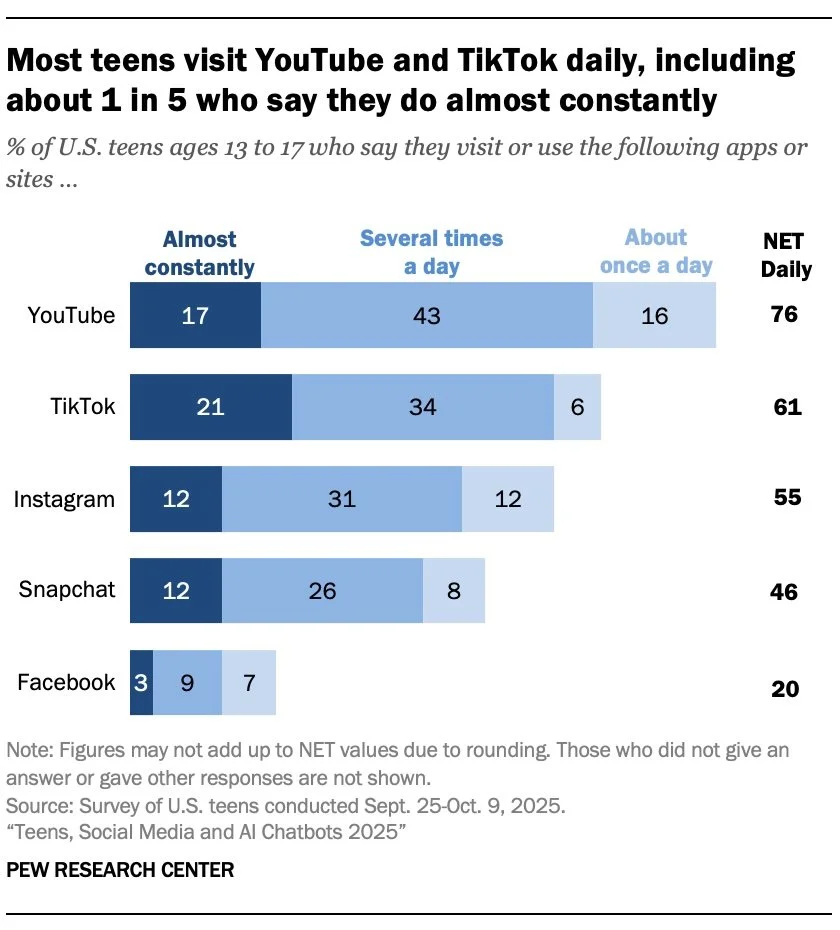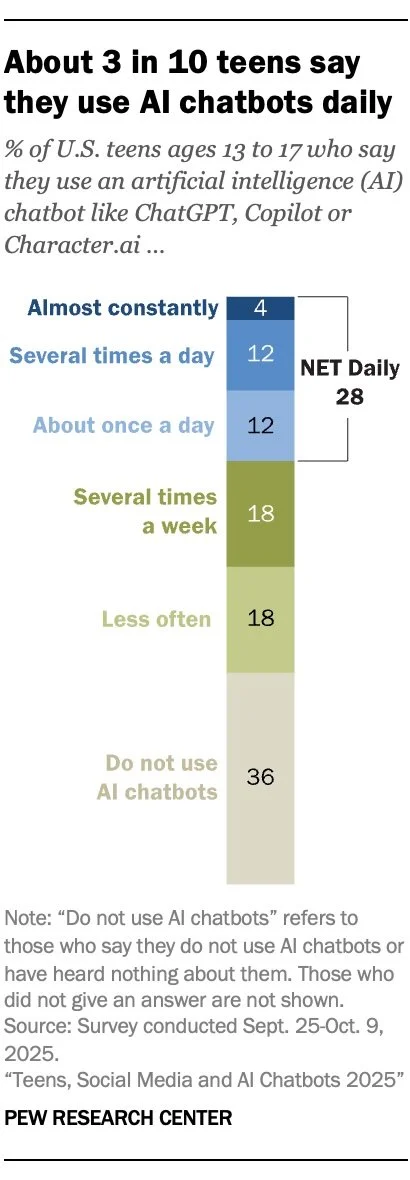OPTIONAL THEME:
KNOWLEDGE AND TECHNOLOGY
YOU ARE THE PRODUCT
Photo credit: Westend61 / Maskot
CLASS ACTIVITY I:
DIGITAL TECHNOLOGY AND YOU
To what extent is the internet changing what it means to know something? In this introductory unit TOK students are invited to consider how digital technology impacts knowledge, and themselves as knowers.
Ask students to close their laptops and phones (and their eyes) for a full, timed minute to reflect on their own relationship to their devices and various social media apps.
When the time is up, quickly assign students into groups of three. Provide each trio with physical print-outs of the sources below. Each group member will facilitate one of the sources. Here is a convenient Google doc.
SOURCE #1:
2024 Social media icons from Adobe
How many of these social media platforms do you use on a regular basis? From the perspective of your own habitual usage, what’s missing from the icons list?
SOURCE #2:
Chinese social media icons
What do you know about any of these platforms? Why are some equivalent Western platforms blocked in China?
SOURCE #3:
2025 Pew Research Center—US data
SOURCE #4:
2024 WHO Report—global data
“More than 1 in 10 adolescents (11%) showed signs of problematic social media behaviour, struggling to control their use and experiencing negative consequences. Girls reported higher levels of problematic social media use than boys (13% vs 9%).
Over a third (36%) of young people reported constant contact with friends online, with the highest rates among 15-year-old girls (44%).
A third (34%) of adolescents played digital games daily, with more than 1 in 5 (22%) playing for at least 4 hours on days when they engage in gaming.
12% of adolescents are at risk of problematic gaming, with boys more likely than girls to show signs of problematic gaming (16% vs 7%).”
Allow a full 15 minutes for group conversations. Invite the scribes to report back to the whole class and facilitate orderly discussion as points of interest emerge. Since there is so much dross and tawdriness online, mention to the scribes that they should should use their discretion when reporting back. Students should address the following questions:
Be honest—roughly how many hours do you spend on screens, not including for school or homework?
What kind of podcasts (if any) do you listen to?
What platforms do you use to enjoy your music and movies?
What is your relationship with online gaming?
How do you usually keep up with the news?
Do you have an interesting story to share about your own Chatbot usage?
Allow a full 15 minutes for group conversations. Invite individuals to report back to the whole class and facilitate orderly discussion as points of interest emerge. Since there is so much dross and tawdriness online, mention that discretion should be used when reporting back.
CLASS ACTIVITY II
Seven provocative internet quotes
This activity is an additional lively entry point for meta-examination of how the internet is changing what it means to know. It will also help students differentiate between data, information and knowledge.
Print out in advance copies of the seven quotes and cut them into individual strips. Here is a handy pdf. of the selection.
THE QUOTES
Internet quote #1
“If television's a babysitter, the Internet is a drunk librarian who won't shut up.”
― Dorothy Gambrell, cartoonist (in Cat and Girl Volume I, 2006)
Internet quote #2
“The Internet is the first thing that humanity has built that humanity doesn't understand, the largest experiment in anarchy that we have ever had.”
― Eric Schmidt, Google CEO and Alphabet executive chairman (at the Internet World Trade Show, New York, 18 November 1999)
Internet quote #3
“It is the greatest truth of our age: Information is not knowledge.”
― Caleb Carr, military historian and author (in his dystopian novel, Killing Time, 2000)
Internet quote #4
“The internet is 95 percent porn and spam.”
― Margaret Atwood, celebrated Canadian poet and novelist
Internet quote #5
“A few years ago, users of Internet services began to realize that when an online service is free, you're not the customer. You're the product.”
Tim Cook, Apple CEO (in an open letter to Apple customers detailing the company’s privacy policy, 17 September 2014)
Internet quote #6
“It's been my policy to view the internet not as an ‘information highway,’ but as an electronic asylum filled with babbling loonies.”
Mike Royko, Chicago newspaper columnist
Internet quote #7
“The Internet is like life in general -- it harbors both opportunities and dangers.”
Elza Dunkels, Swedish scientist (in Youth Culture and Net Culture: Online Social Practices: Online Social Practices, 2010)
Do not project the quotes on a screen at this stage. Start the activity by calling for seven willing student volunteers. Announce and execute a public sequential reading of all seven of the quotes; including giving full measure to the author of the quote and any other details in the citation. The students should re-read the the quote itself for emphasis.
Direct students into “conversation huddles” of four and then hand each group three quotes. Allow a timed four minutes for group critique. Tell students to appoint a spokesperson who will later report back; unpacking the meaning, and championing the wisdom (or folly), of their favorite quote. Lively whole class discussion will ensue. The following generative questions may or may not be necessary.
1. To what extent does the quote resonate with you? Explain briefly.
2. In what ways has the quote infected or prodded your opinions about the pros and cons of the internet?
3. Does the status of the author of the quote matter?
Plan to curtail the class discussion—it might not be easy—a few minutes early to further discombobulate the room by showing The Social Dilemma official trailer.
CLASS ACTIVITY III
DO YOU OWN YOUR NAME?
One of the delights of this activity is that it is based on a text created by a peer TOK student. Cole Lameyer is one of my own TOK seniors. He wrote this in early 2021. The text is a verbatim transcript of the introduction of his TEDx-style presentation on the Cambridge Analytica scandal. It is used here with his permission.
The generative questions crafted for the text (again, with Cole’s blessing) are offered here without a specific lesson plan. They could be used:
In timed small group conversations followed by reporting back to jump start whole class discussion
To structure Harkness table discourse
As a graded written assignment
Here is a pdf of the text and generative questions for distribution to your students. These questions also echo some of the sentiments in the provocative quotes in the previous class activity. There is considerable overlap with the generative questions in Post-truth?—part of the Knowledge and Politics optional theme.
Cole’s TEXT: “YOu ARE THE PRODUCT!”
“Do you own your name? What about your face? Your personality?
I could pull out a pen and paper and start writing down a million different things about you and that would be perfectly legal because what exactly am I taking? Nothing. I am copying information, concepts and ideas that can be expressed as data and used for various purposes. Some of which you probably wouldn’t be OK with and, at that point, you probably would knock the pen and paper out of my hands. Right?
Now what if I had a business where the entire premise is you giving me that information? We all use social media here, some of you more than others, but no one here doesn’t have a digital footprint. It is, in fact, very difficult not to have one. Think about what you are really doing when you use social media. It’s not like most other businesses. Right? When you want to buy an apple you go to the grocery store and give them a dollar—currency in exchange for material goods. The same applies for services. But what exactly are you giving social media? Social media is free.
Now, your phone isn’t free and neither is the electricity that powers it. But none of those costs actually go to the social media platform. It doesn’t cost anything to make an account and there aren’t any micro-transactions when you want to post something. So what exactly is the platform getting out of rendering the service for you? The answer is you. You are the product.
The kind people at Snapchat Instagram and Twitter don’t give you their services for free. Rather—whenever you use them they are renting your eyeballs; showing you advertisements for product after product that they are paid to display, and paid even more if they get a click. But they are not just showing you ads. No. They are watching you watching—looking for patterns and trends so they can better show you more relevant things and, of course, sell that information to other people; who also want to show you more relevant things…”
With permission—Cole Lameyer
TOK student at the French American International School, class of 2021
THE Generative Questions
Using specific examples, what are some of the differences in the user experience between “free”platforms and subscription platforms?
How does the social media business model play into the emergence of so called, “filter bubbles” and “rabbit holes”?
If “you are the product,” what ethical parallels might be made with the predicament of the denizens of Plato’s Cave and the 1998 movie The Truman Show, whose protagonist was “on the air unaware”?
CODA:
INFANTILIZED humans in WALLᐧE (2008)
Here is a short excerpt from the screenplay of the 2008 Pixar movie WALLᐧE. Hundreds of years after ruining planet Earth, humans are confined to a spaceship called Axiom. Humans have degenerated in mind and body with advanced technology catering to every need.
Wally is in awe. Hundreds of floors of GUEST ROOMS rise on all sides. THOUSANDS OF PASSENGERS fill the giant space. All reclined and riding on hover chairs. MULTIPLE FLOOR LINES guide their chairs in all directions.
Humans have become the most extreme form of couch potatoes. Absolutely no reason to ever get up. No purpose. Every one of them engrossed in their video screens. Cocooned in virtual worlds. Over-developed fingers tap ARMREST KEYPADS. The controls allow them to steer... ...order food... ...play games... ...and most of all... ...CHAT MINDLESSLY with other passengers: The CHATTER is deafening. No one notices Wally at all. He drives into the endless human traffic…
SHIP’S COMPUTER VOICE OVER… Buy N Large. Everything you need to be happy. Your day is very important to us…
Wally is gobsmacked.
Still from Pixar’s 2008 animated post-apocalyptic love story, WALLᐧE.





